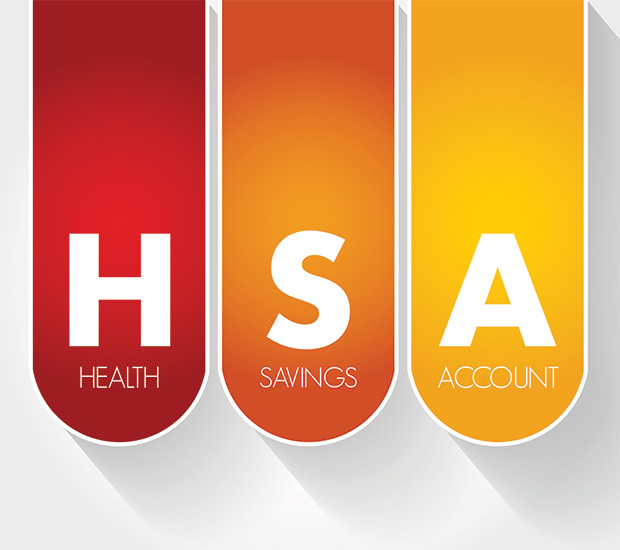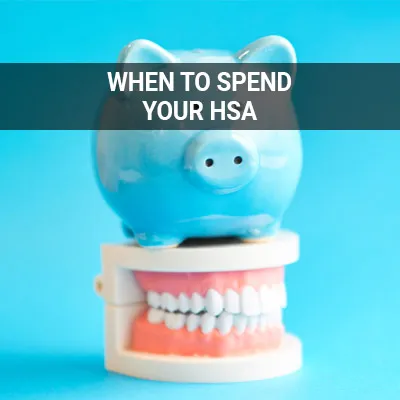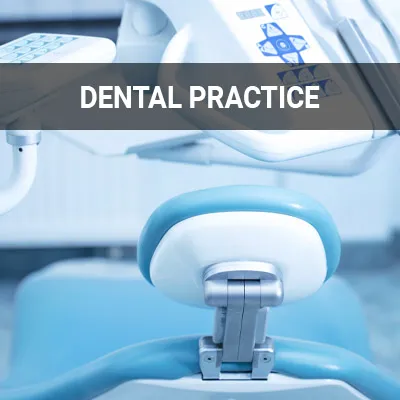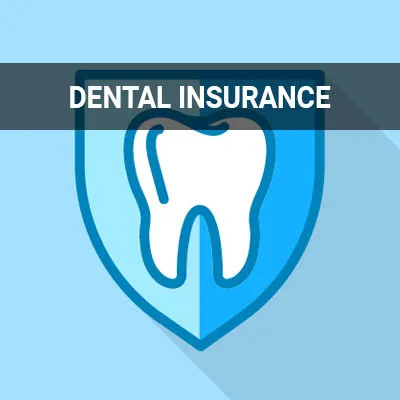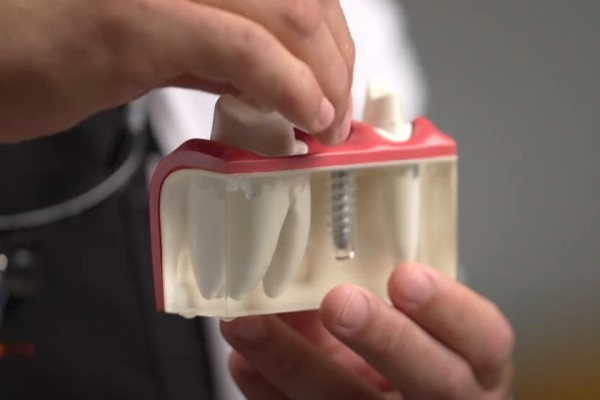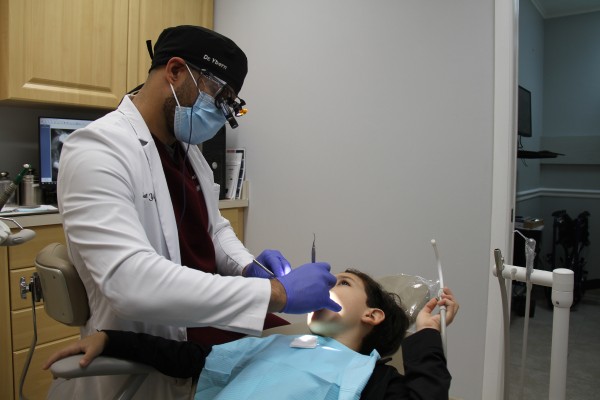Health Care Savings Account Fort Pierce, FL
Opening a health care savings account can help people cover their out-of-pocket costs. People can use these unique, tax-advantaged accounts to pay for current or future healthcare expenses for you, your spouse, and your dependents. When combined with a high-deductible healthcare plan, people can receive tax advantages to save money in the long-run.
If you are looking to save money while taking care of your oral health, a health care savings account, HSA, can help. Our team at Fort Pierce Smiles can help you learn more about HSAs and other coverages. Call us at (772) 232-7073 to learn more about our services or schedule an appointment.
How an HSA Works
An HSA is a type of savings account that is only applicable for qualifying health care expenses. It complements a high-deductible health plan, or HDHP, to help control health care costs. Unlike FSAs, patients own and control all the money in an HSA. There are certain qualifying factors one must meet to open up an HSA. Patients must be under the age of 65 and have an HDHP as their only health insurance.
HSAs may be offered through employers, or patients may start an account independently through their bank or another financial institution. Patients must not be able to be claimed as a dependent on someone else's taxes or have received veteran's benefits within the last three months. They also cannot have a health care flexible spending account (FSA) or health reimbursement account (HRA).
“An HSA is a type of savings account that can only be used for qualifying health care expenses.”
HSA Pros and Cons
HSAs offer several benefits. People can withdraw money to pay for procedures, deductibles, copayments, or other medical expenses. Any money left in the account at the end of the year will roll over into the next year. Even if a person's health care coverage changes due to a change in jobs, as long as they continue with a high-deductible plan, funds in the account continue to grow, tax-free. If a person changes jobs, they can enroll in a new healthcare plan and maintain access to their existing HSA, even if the new healthcare plan does not qualify. Additionally, most people can use a debit card or checks to access their funds easily.
HSAs also have some disadvantages that people should consider. One of the biggest downsides to an HSA involves the requirement to have a health insurance plan with a high deductible. Although this coverage offers lower premiums, high deductibles often become hard to come up with if facing a significant medical issue. With increasing costs of health care premiums and deductibles, it may be challenging to add more money to one's health savings account. Some people with high deductibles hesitate to see the doctor to seek treatment due to the high costs. They may feel as if they must keep the money in their HSA to save for retirement — thus putting off important medical care.
“If a person changes jobs, they can enroll in a new healthcare plan and maintain access to their existing HSA, even if the new healthcare plan does not qualify.”
Tax Advantages of an HSA
Enrollees do not have to pay taxes on any money put into or taken out of an HSA, giving them several tax benefits. Moreover, if the HSA is offered through an employer, the enrollee can potentially save more taxes on their paycheck by making pre-tax payroll contributions.
They may also earn tax-free interest on their HSA funds, and, unlike FSA funds, HSA funds do not expire. Instead, they roll over on an annual basis. Furthermore, all HSA funds are available for penalty-free use once the enrollee turns 65 years of age.
“Enrollees do not have to pay taxes on any money put into or taken out of an HSA, giving them several tax benefits.”
Check out what others are saying about our dental services on Yelp: Health Care Savings Account in Fort Pierce, FL
Finding Out if HSA Covers a Treatment
People with HSA accounts may be wondering what types of dental services are covered. With an HSA, there is a big difference between services that diagnose, treat, and prevent. People should contact their provider for more information on covered dental treatments.
Some procedures may have a copayment, so it is also important to check with dental insurance providers to determine the out-of-pocket costs. Not all HSAs cover the same things. People with questions about coverage should contact their employer's benefits department, their HSA provider, or the third-party payer of their health plan.
“People with questions about coverage should contact their employer’s benefits department, their HSA provider, or the third-party payer of their health plan.”
Questions Answered on This Page
Q. What are the pros and cons of an HSA?
Q. Do HSAs cover dental treatments?
Q. What dental treatments does an HSA cover?
Q. What are some of the tax advantages of an HSA?
People Also Ask
Q. How should people spend and invest their HSA contributions?
Q. Why is it important to find the right general dentist?
Q. When is the right time to open an HSA?
Q. What should I look for in a dental insurance plan?
Treatments Covered by an HSA
Dental services and HSA eligibility can vary; however, some common and necessary dental procedures are eligible. HSAs cover treatments that diagnose, treat, mitigate, cure, and prevent disease. HSAs cover most dental treatments deemed medically necessary, such as:
- Regular cleanings and routine visits
- Fillings
- Root canals
- Extractions
- Crowns
- Dentures and bonding
Even with an HSA, there may be a copayment for the patient. HSAs do not cover cosmetic dental treatments such as teeth whitening or regular dental expenses, such as toothpaste, toothbrushes, dental floss, and mouthwash.
“HSAs cover treatments that diagnose, treat, mitigate, cure, and prevent disease.”
Frequently Asked Questions
Q. Can I use my HSA funds on non-medical-related expenses?
A. Yes. However, using your HSA funds on non-eligible expenses will require you to be taxed on said expenses, as the initial contributions went tax-free. You may also face a 20% tax penalty if you are under the age of 65.
Q. Can I have more than one HSA?
A. Yes. Though you cannot have an HSA in conjunction with an FSA or HRA, you can open as many HSA accounts as you want. However, annual IRS contribution limits may still apply.
Q. What is the monthly or annual fee for an HSA?
A. The monthly fee for an HSA tends to be less than $5 a month, or around $30 a year. However, many HSAs do not require monthly payments, and others may waive or reduce these fees if enrollees maintain a minimum balance.
Q. What is the difference between an FSA and an HSA?
A. FSA funds are available on a "use-it-or-lose-it" basis, while HSA funds carry over from year to year. HSA funds are also entirely in the enrollee's control, meaning they stay with the enrollee even when they change jobs or move to a different state.
Q. What happens to my HSA when I change health insurance policies?
A. Since your HSA funds are entirely yours, your HSA will remain unchanged even if you change your health insurance plan. However, you will only be eligible to make future contributions to your HSA if you choose a qualifying plan.
Dental Terminology
Call Us Today
HSA can help you lower the costs of dental treatment. Our team at Fort Pierce Smiles can help. Call us today at 772-232-7073 to learn more about our services or schedule an appointment.
Helpful Related Links
- American Dental Association (ADA). Glossary of Dental Clinical Terms. 2024
- American Academy of Cosmetic Dentistry® (AACD). Home Page. 2024
- WebMD. WebMD’s Oral Care Guide. 2024
About our business and website security
- Fort Pierce Smiles was established in 2023.
- We accept the following payment methods: American Express, Cash, Check, Discover, MasterCard, Visa, Care Credit, Sun Bit, iCreditWorks, and In house financing
- We serve patients from the following counties: St. Lucie County
- We serve patients from the following cities: Fort Pierce, Fort Pierce South, White City, Fort Pierce North, St Lucie, Okeechobee, Hutchinson Island, and Vero Beach
- Norton Safe Web. View Details
- Trend Micro Site Safety Center. View Details
Back to top of Health Care Savings Account
